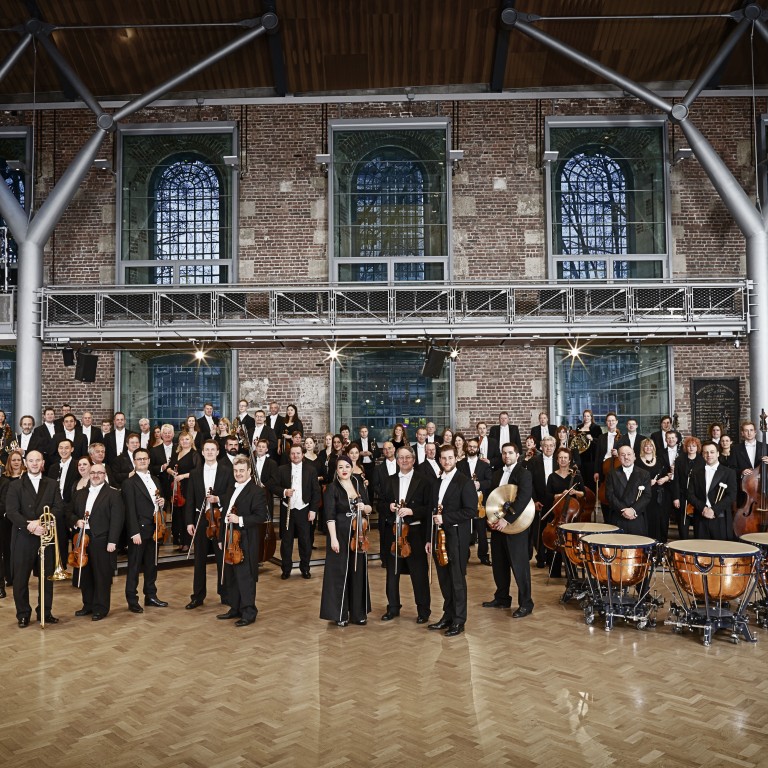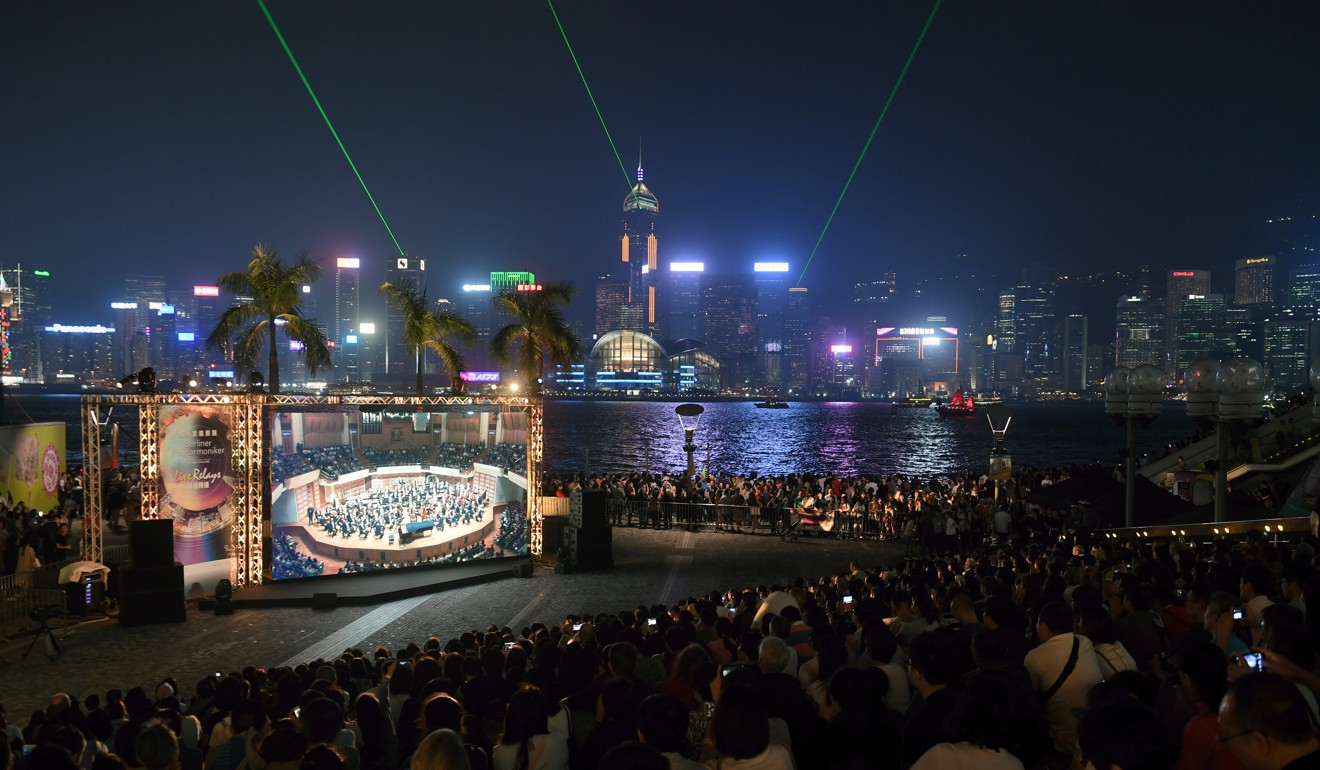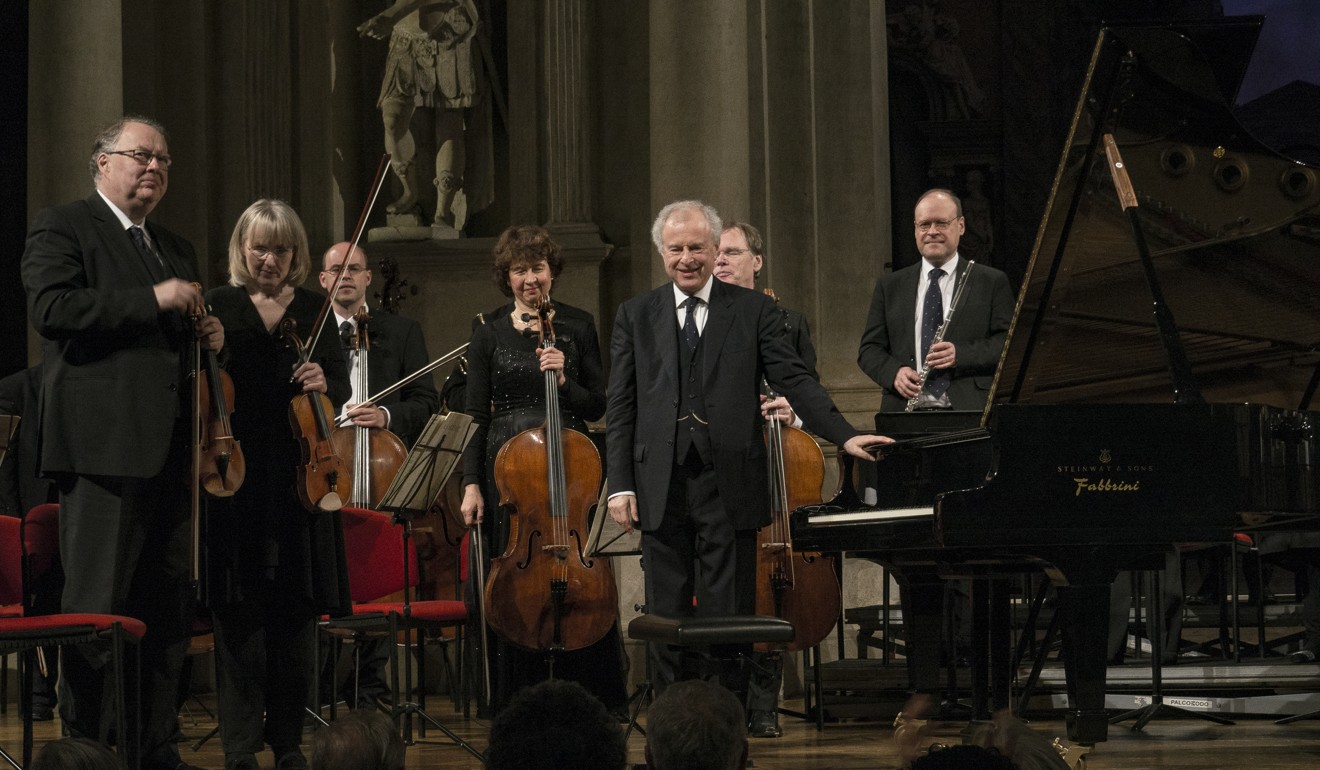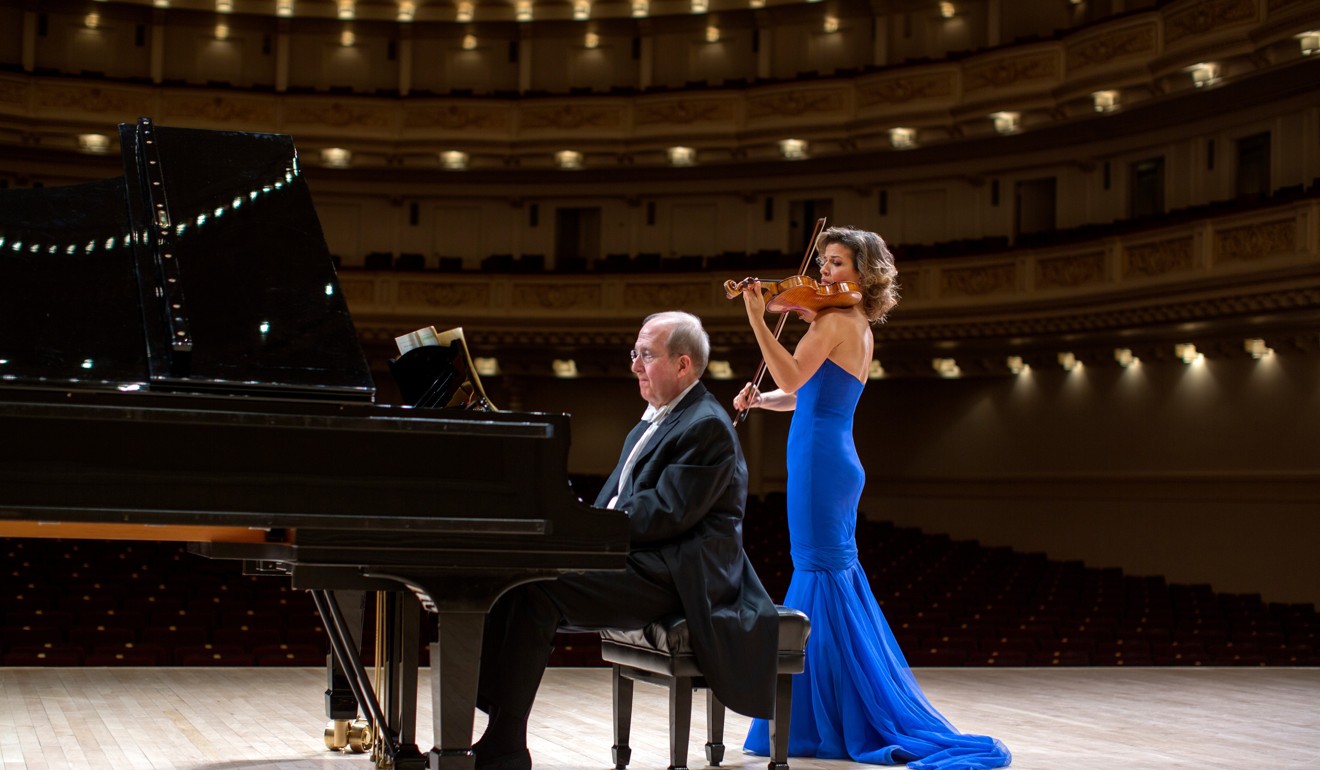
Hong Kong Cultural Centre marks its 30th anniversary in classical style
- The centre is commemorating the milestone with Great Music 2019, a series of three concerts showcasing performances by some of the world’s most talented musicians
Classical music fans, rejoice – the Hong Kong Cultural Centre is feting its 30th anniversary with Great Music 2019, a series of three concerts paying tribute to local and international artists.
Taking place from September until November, the festivities kick off with three concerts by Sir Simon Rattle and the London Symphony Orchestra (LSO). Rattle is no stranger to the city, having last visited Hong Kong as outgoing chief conductor of the Berliner Philharmoniker in 2017.
The much beloved maestro is back – this time at the helm of the LSO, regarded as one of Britain’s most popular classical music ensembles. It will play a line-up of popular crowd-pleasers from Rachmaninoff, Britten, Brahms, Prokofiev, Haydn and Adams.

The programme pays tribute to rising local stars and the orchestra will be joined by three different pianists for each of the three nights. Gracing the Concert Hall stage for the September 22 performance is Colleen Lee, who studied under acclaimed musician Arie Vardi at the Hanover University of Music, Drama and Media, and who won sixth prize at the 15th International Chopin Piano Competition.
Lee will play Prokofiev’s Piano Concerto No. 3, an athletic number – and an apparent favourite of acclaimed concert pianists Martha Argerich and Yuja Wang – which is known for its fresh vitality, with the lyrical passages punctuated by plenty of playful dissonances.
Aristo Sham, another Hong Kong talent, will play Rachmaninoff’s Piano Concerto No. 3 on September 24. Widely regarded as the composer’s most technically challenging piece, its score is fast, layered with seemingly endless chordal statements, and at 45 minutes long, demands the utmost virtuosity of its player. Sham won first prize and the Barenreiter Urtext Special Prize at the Ettlingen International Piano Competition in Germany in 2006, and the Gina Bachauer International Junior Piano Competition in 2008. He was subsequently featured in the Channel 4 documentary The World’s Greatest Musical Prodigies, screened on British television.

Seven-time Grammy-winning pianist Emanuel Ax will join the LSO on September 25 for Brahms’ Piano Concerto No. 2. Composed in 1881, the piece integrates the principles of symphony and concerto, with the piano not so much demanding centre stage as being woven into the orchestra.
Having first captured the public’s imagination by winning the first Arthur Rubinstein International Piano Master Competition in 1974, Ax is known for his commitment to chamber music, as well as for his graceful and sensitive playing – something that Brahms’ concerto demands.
As part of the Cultural Centre’s commitment to allow more people to enjoy the thrill of classical music, there will be live transmissions of all three LSO concerts at the Piazza of the Hong Kong Cultural Centre, Tsuen Wan Town Hall, Tuen Mun Town Hall and Yuen Long Theatre.
In mid-November, Sir András Schiff and the Cappella Andrea Barca will play a focused but rich repertoire of Beethoven, Mozart and Bach.
In mid-November, Sir András Schiff and the Cappella Andrea Barca will play a focused but rich repertoire of Beethoven, Mozart and Bach
A reputed pianist and conductor, Schiff, who was born in Budapest in 1953, is known for his interpretations of Bach, Haydn, Mozart and Beethoven. A pianist-in-residence of the Berliner Philharmoniker from 2007 to 2008, he was the artistic director of Musiktage Mondsee from 1989 to 1998, and in 1995 co-founded Switzerland’s Ittinger Pfingstkonzerte.
In 1999, he created Cappella Andrea Barca, the name of which is a play on his surname – barca and schiff are the Italian and German words for “boat”. It comprises international soloists and chamber musicians who are not tied to any one musical group.
Cappella Andrea Barca first broke onto the classical music scene with their performance of Mozart’s complete piano concertos at the Mozart Week festival in Salzburg between 1999 and 2005, but have since expanded their repertoire in the past two decades.
Highlights from the group’s two concerts at Great Music 2019 include Bach’s Ricercar No. 6. The tune, which comes from the composer’s The Musical Offering, said to have its origins in a meeting between the composer and Frederick II. The king had invited Bach on a tour of his palace, with the intention of showing off his fortepiano, a novelty at the time, when he challenged the composer to improve a six-voice fugue.

The Cappella ensemble will also perform Mozart’s Symphony No. 39 and Symphony No. 41 on two separate nights.
Composed in 1788, they were among Mozart’s three final symphonies. As they were not composed on court orders – as was customary at the time – the two symphonies have taken on a mythical status over the years, with much speculation as to why they were written.
Some say they were intended for a series of subscription concerts, later cancelled owing to a lack of support and funding, while others argue that the composer had planned to debut them during an upcoming trip to England.
While Symphony No. 39 is lyrical and buoyant, Symphony No. 41, aptly nicknamed “Jupiter”, is noted for its grandiosity, especially in the last movement, which critics have called one of the most complex counterpoint pieces of fugal writing in classical music history.
The 30th anniversary concert series will also feature Encore Series: Violin Recital by Anne-Sophie Mutter. The four-time Grammy winner is no stranger to Hong Kong audiences, having given recitals and performed with the Hong Kong Philharmonic Orchestra.
Mutter is known for her technical artistry and tonal richness, as well as her championing of both old masters and living composers. The Hong Kong concert will, however, be dedicated to Beethoven and Mutter will be accompanied by Lambert Orkis, a classical pianist noted particularly for his chamber music work.
Mutter and Orkis have worked together for three decades, since shortly before Mutter’s 1988 Carnegie Hall debut. The two have recorded the complete sonatas of Mozart, Beethoven, Brahms and Penderecki for Deutsche Grammophon.
The evening will kick off with Beethoven’s Sonata No. 4. Composed in A minor, the piece begins with a relatively grim theme, followed by a relaxed second movement before it is disrupted by a bleak, unsettling motif.
In contrast, Sonata No. 5 is perky and airy. Typical of serenades, a march-like entranda and a playful finale of Scotch snap rhythms flank a brief adagio.
After the melancholy of No. 4 and the lighthearted wit of No. 5, the audience will be treated to Sonata No. 9, a rousing piece which runs the gamut of fury to pensiveness to joyful exuberance.
The emotional scope is perhaps matched by the score’s dramatic backstory – Beethoven had originally dedicated the sonata to the charismatic violinist George Bridgetower.
However, owing to a disagreement between the two, the composer decided to change the dedication to Rodolphe Kreutzer, a French violinist and composer.
